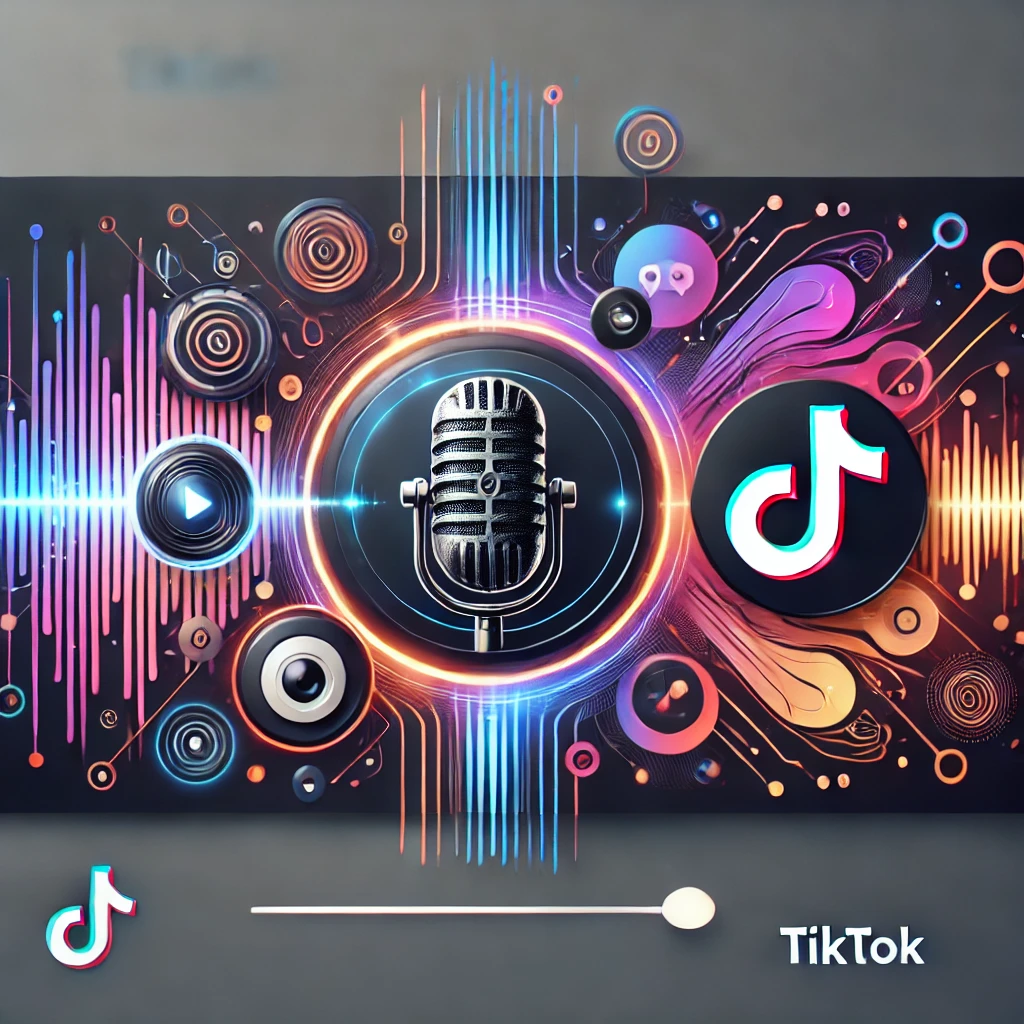TikTok, known for its dynamic and ever-evolving platform, has just rolled out a new feature that allows users to create AI simulations of their own voices. This innovation offers a personalized alternative to the generic text-to-speech voices currently available, and it promises to reshape how users engage with video narration on the platform.
With the rise of AI in creative tools, TikTok’s parent company, ByteDance, has been at the forefront of integrating artificial intelligence into their services. Their latest development gives users the power to generate a digital version of their voice, which can be used in future video voice-overs. This marks a significant step in making content creation more personalized and accessible to a wider audience.
Key Features of TikTok’s AI Voice Cloning
Personalized AI Voices: TikTok’s new feature enables users to generate AI clones of their voices with just 10 seconds of input. The AI system then creates a voice that mirrors the user’s tone and speech patterns, offering a more authentic and personal touch to video content. Users can now narrate their TikTok videos with their own AI-generated voice, rather than relying on the standard voices that have been used across the app.
Simple Creation Process: The process of creating an AI voice is straightforward. Users simply record a few lines of speech into their device, and TikTok’s system uses this input to generate a replica. This ease of use will likely appeal to content creators looking to maintain a personal connection with their audience without having to record their voice every time they make a video.
Privacy Considerations: One of the standout aspects of this feature is its focus on privacy. The AI-generated voice is private and accessible only to the user who created it. Moreover, users have the option to delete their AI voice at any time, ensuring that control over this digital asset remains in the hands of the creator.
Language Translation: A particularly exciting aspect of this AI voice feature is its ability to translate content into other languages. This makes TikTok’s platform even more inclusive, as creators can now produce content that can be understood across different linguistic audiences while still maintaining the essence of their own voice.
A More Versatile Approach to Content Creation: The new AI voice feature is designed to give users more flexibility in how they create and share content. It reduces the need for repetitive voice recordings, offering a time-saving solution for creators who produce multiple videos. The ability to use their own voice over and over again without extra effort makes this tool a valuable addition to TikTok’s growing suite of content creation tools.
The Impact of AI on Content Creation
TikTok’s integration of AI voice technology is a reflection of a broader trend across social media platforms. By enabling users to create AI simulations of their own voice, TikTok empowers its community to produce content that is not only more engaging but also more accessible. This feature reduces the strain on users’ voices, especially those who frequently create content, while also providing an avenue for personalized expression. Instead of sounding like every other video on the platform, creators can use their unique voice without having to constantly record new audio clips.
This development is a direct result of ByteDance’s AI research, specifically in the area of voice replication. Earlier this year, ByteDance unveiled the “StreamVoice” system, a cutting-edge AI model capable of replicating any person’s voice with minimal input. This technology is now being applied to TikTok, giving users a taste of the advanced AI capabilities that have been developed behind the scenes.
AI Voice: Opportunities and Concerns
While the potential of AI voice replication is immense, it also raises some important concerns. The ability to mimic someone’s voice with high accuracy can lead to misuse, particularly in the creation of deepfakes and other forms of digital deception. TikTok, like other platforms experimenting with AI-driven tools, will need to ensure that appropriate safeguards are in place to prevent the technology from being exploited.
Social media companies, including Meta, have also been exploring AI voice and chatbot technologies. For example, Meta has introduced chatbots that mimic the voice and personality of creators to help them manage the overwhelming amount of interactions they receive. These developments highlight a growing interest in AI-driven social interaction, but they also prompt questions about authenticity. Do people really want to interact with a bot that sounds like their favorite creator? Or will this shift social media further away from its original mission of fostering real human connections?
The Future of AI in Social Media
TikTok’s AI voice cloning feature is likely just the beginning of what we’ll see in terms of AI-enhanced content creation. The inclusion of language translation is particularly noteworthy, as it opens up global communication and could help creators reach a much broader audience. For those who create content in one language but have a diverse audience, the ability to translate voice-overs without losing the original tone and style is a major breakthrough.
But beyond language translation, the question remains: Is this a feature that users will embrace long-term? For many, the convenience of an AI voice may be attractive, but it could also diminish the authenticity that makes social media appealing in the first place. The idea of an AI-generated voice, while useful in some cases, might feel less personal and genuine compared to a live, human-recorded voice.

